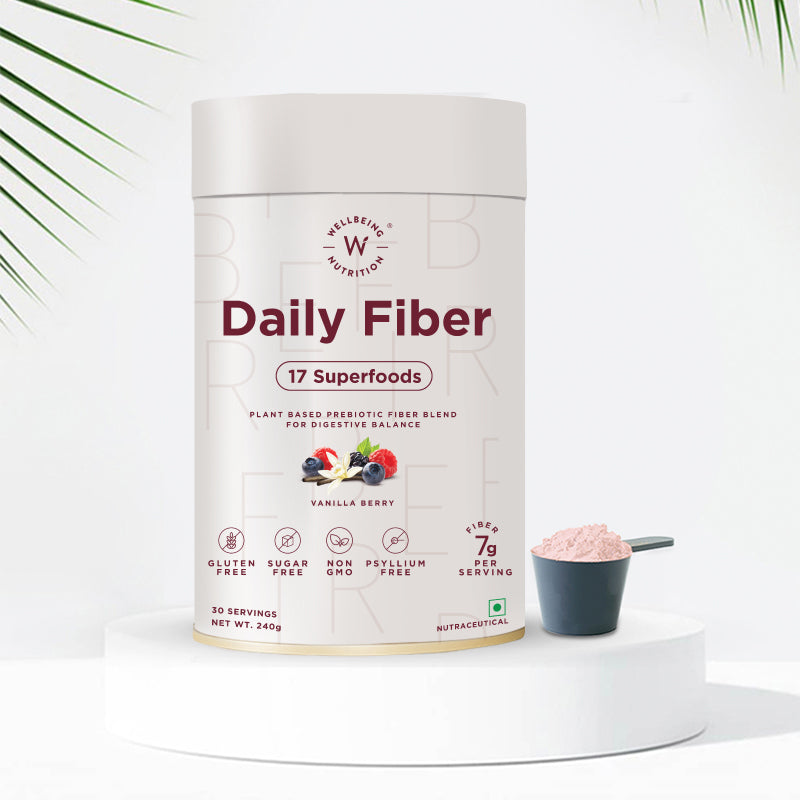7 Natural Sources of Probiotic

Probiotics play an instrumental role in maintaining good gut health. They are available either in fermented foods or dietary supplements. The latter is sold over the counter, which is meant to treat only specific ailments. But it is always better to add probiotics to your everyday diet and have it in its most natural form. So what are these natural sources of probiotics? Read on to find out.
Natural sources of probiotics
Fermented foods are the best and the most natural source of probiotics. Fermenting is one of the most traditional forms of food preservation. Fermented foods go through a process known as Lacto fermentation, which has natural bacteria feed on starch or sugar present in the food, producing lactic acid. In this way, a habitat to preserve the food and encourage important enzymes, omega-3 fatty acids, vitamins, and other different species of good bacteria is created. A few examples of probiotic-rich foods are given below. Let’s take a look:
Yogurt
One of the best probiotic foods, yogurt has numerous health benefits such as improving bone health, alleviating symptoms of irritable bowel syndrome (IBS) and other gut-related ailments, reducing blood pressure and the like. Yogurt is prepared from milk through fermentation, thanks to friendly bacteria like bifidobacteria and lactic acid bacteria. However, some yogurt brands are processed, which explains why it is necessary to choose the ones that have live or active cultures.

Miso
Miso is a form of traditional Japanese seasoning. It is a fermented paste, which lends a salty umami flavor to the dishes it is added to. It is prepared by fermenting soybeans with salt, rice, barley or rye, and a certain kind of fungus known as koji. Miso soup is made by using this paste, and this dish is a very popular as well as a healthy breakfast delicacy in Japan. It is typically available in four varieties -- yellow, red, brown, and white. This is a good source of fibre, protein, plant compounds, vitamins, and minerals like copper and manganese. It has several health benefits, which include improving respiratory health, reducing the risk of heart ailments and cancer.

Tempeh
Another fermented soybean product, tempeh has an earthy, nutty flavour, quite similar to that of a mushroom. Given its texture, vegans use it as a meat substitute. Tempeh is known for its impressive nutritional profile, thanks to the fermentation process that lowers the amount of phytic acid in soybean - a plant compound known to diminish the absorption of minerals like zinc and iron. Tempeh is also considered rich in vitamin B12, mainly found in animal products like eggs, fish, and poultry.

Sauerkraut
Known for its probiotic properties, unpasteurized sauerkraut is a finely shredded cabbage, fermented using lactic acid bacteria. Popular in European countries, it is one of the oldest and most traditional foods used as a side dish to your steak or as a filler in your burgers. Typically, it is sour and salty to taste and is stored in an airtight container for months, as we do with pickles. Additionally, it is rich in vitamins B, C, and K, and dietary fibre. It also contains minerals like iron, sodium, and manganese, as well as antioxidants like zeaxanthin and lutein.

Kimchi
Kimchi, a popular Korean dish, is another example of fermented food, known for its probiotic properties. It is prepared by fermenting vegetables like radish and cabbage with seasonings, such as garlic, red chili pepper flakes, scallion, ginger, and salt. It is made with the help of the good bacteria, Lactobacillus kimchi, as well as other lactic acid bacteria. It is known to improve digestion.
Buttermilk
This traditional drink consumed mainly in South Asian countries is a leftover liquid obtained after making butter. Low in calories and fat and predominantly known to aid in digestion, buttermilk contains important vitamins and minerals such as B12, calcium, phosphorus, and riboflavin.
Kombucha
Fermented with the help of SCOBY (symbiotic culture of bacteria and yeast), kombucha is a sugary black or green tea drink. The SCOBY bacteria and yeast feed on most of the tea's sugar, converting it into a sour, fermented yet refreshingly fizzy non-alcoholic drink. Additionally, it contains antioxidants, killing harmful bacteria and helping fight numerous digestive health issues.
Apart from these, apple cider vinegar, kefir, certain varieties of cheese, pickles, another fermented soybean product called natto, and the like are also considered natural sources of probiotics. You can also take probiotics in the form of capsules, tablets, and powders, which contain the bacteria in dried form. However, it is advisable to consult a doctor for the same.
References:
- Rezac S, Kok CR, Heermann M, Hutkins R. Fermented Foods as a Dietary Source of Live Organisms. Front Microbiol. 2018;9:1785. Published 2018 Aug 24. doi:10.3389/fmicb.2018.01785. (https://www.ncbi.nlm.nih.gov/pmc/articles/PMC6117398/)
- P.H.P. Prasanna, A.S. Grandison, D. Charalampopoulos,
Bifidobacteria in milk products: An overview of physiological and biochemical properties, exopolysaccharide production, selection criteria of milk products and health benefits, Food Research International,
Volume 55, 2014, Pages 247-262, (https://www.sciencedirect.com/science/article/abs/pii/S0963996913006121) - Kokubo Y, Iso H, Ishihara J, Okada K, Inoue M, Tsugane S; JPHC Study Group. Association of dietary intake of soy, beans, and isoflavones with risk of cerebral and myocardial infarctions in Japanese populations: the Japan Public Health Center-based (JPHC) study cohort I. Circulation. 2007 Nov 27;116(22):2553-62. doi: 10.1161/CIRCULATIONAHA.106.683755. Epub 2007 Nov 19. PMID: 18025534. (https://pubmed.ncbi.nlm.nih.gov/18025534/)
- Yamamoto S, Sobue T, Kobayashi M, Sasaki S, Tsugane S; Japan Public Health Center-Based Prospective Study on Cancer Cardiovascular Diseases Group. Soy, isoflavones, and breast cancer risk in Japan. J Natl Cancer Inst. 2003 Jun 18;95(12):906-13. doi: 10.1093/jnci/95.12.906. PMID: 12813174. (https://pubmed.ncbi.nlm.nih.gov/12813174/)
- Chemical composition of tempeh from soybean cultivars specially developed for human consumption, Ana Carla Furlan BAVIA, Carlos Eduardo da SILVA, Márcia Pires FERREIRA, Rodrigo SANTOS LEITE,
José Marcos Gontijo MANDARINO, Mercedes Concórdia CARRÃO-PANIZZI, https://www.scielo.br/j/cta/a/LB7W5cg7hsrmLNvwXxhdVJh/?format=pdf&lang=en - Denter J, Bisping B. Formation of B-vitamins by bacteria during the soaking process of soybeans for tempe fermentation. Int J Food Microbiol. 1994 Apr;22(1):23-31. doi: 10.1016/0168-1605(94)90004-3. PMID: 8060790. (https://pubmed.ncbi.nlm.nih.gov/8060790/)
- Improved Sauerkraut Production with Probiotic Strain Lactobacillus plantarum L4 and Leuconostoc mesenteroides LMG 7954, Jasna Novak
University of Zagreb Faculty of Food Technology and Biotechnology
Andreja Leboš Pavunc, Kresimir Gjuracic, Gnosis Bioresearch, Marina Spoljarec, (https://www.researchgate.net/publication/51091826) - Yoon JH, Kang SS, Mheen TI, Ahn JS, Lee HJ, Kim TK, Park CS, Kho YH, Kang KH, Park YH. Lactobacillus kimchii sp. nov., a new species from kimchi. Int J Syst Evol Microbiol. 2000 Sep;50 Pt 5:1789-1795. doi: 10.1099/00207713-50-5-1789. PMID: 11034488. (https://pubmed.ncbi.nlm.nih.gov/11034488/)
- Park KY, Jeong JK, Lee YE, Daily JW 3rd. Health benefits of kimchi (Korean fermented vegetables) as a probiotic food. J Med Food. 2014 Jan;17(1):6-20. doi: 10.1089/jmf.2013.3083. PMID: 24456350. (https://pubmed.ncbi.nlm.nih.gov/24456350/)
- Chemical Composition, Probiotic Survivability and Shelf Life Studies of Symbiotic Buttermilk, Dong Zhang, 2015, University of Vermont Scholar Works, (https://scholarworks.uvm.edu/cgi/viewcontent.cgi?article=1368&context=graddis)
- Kapp JM, Sumner W. Kombucha: a systematic review of the empirical evidence of human health benefit. Ann Epidemiol. 2019 Feb;30:66-70. doi: 10.1016/j.annepidem.2018.11.001. Epub 2018 Nov 10. PMID: 30527803. (https://pubmed.ncbi.nlm.nih.gov/30527803/)
- Choosing a selection results in a full page refresh.
- Press the space key then arrow keys to make a selection.

Talk to an Expert












